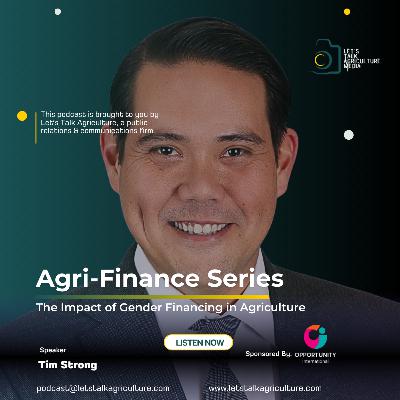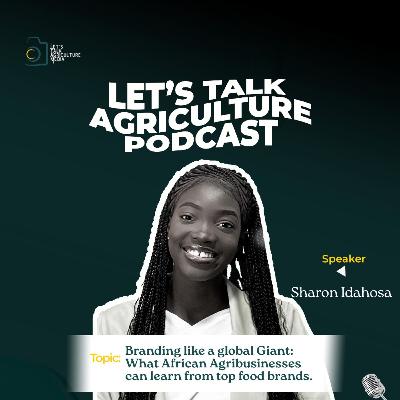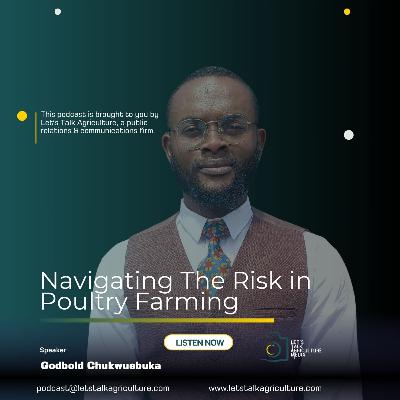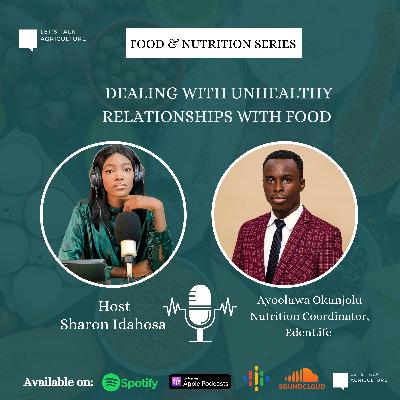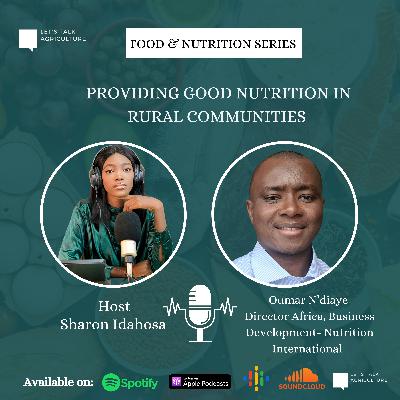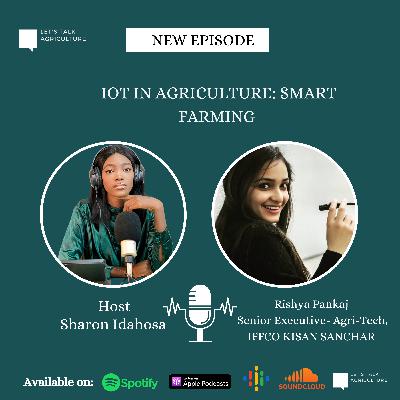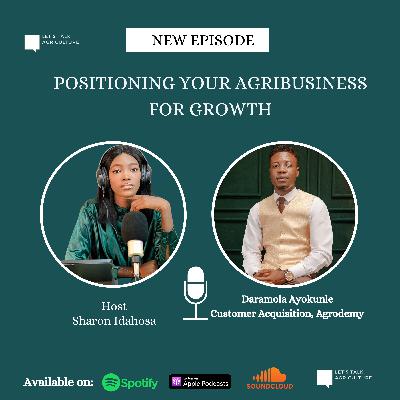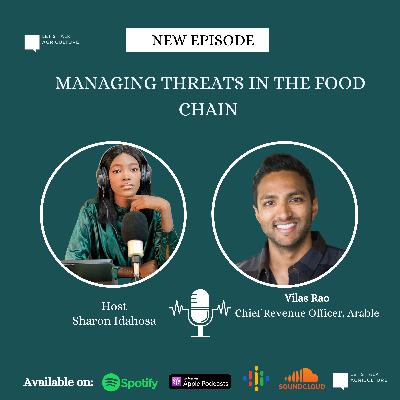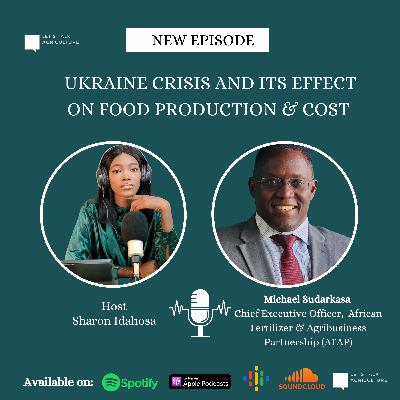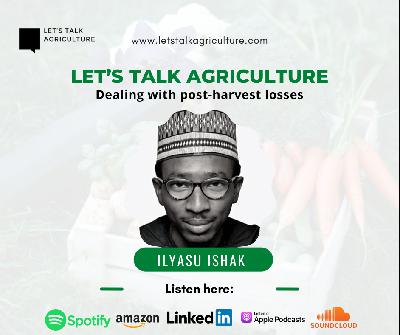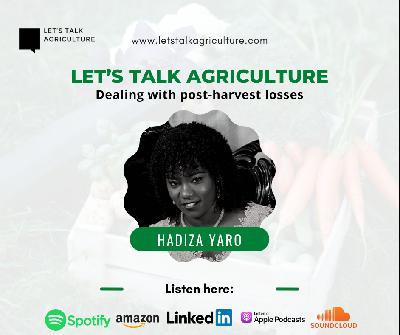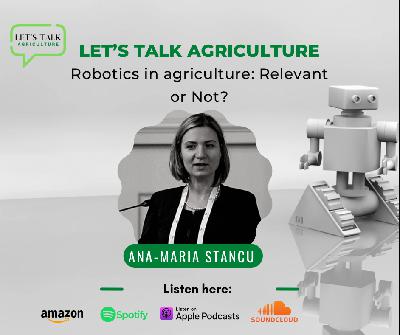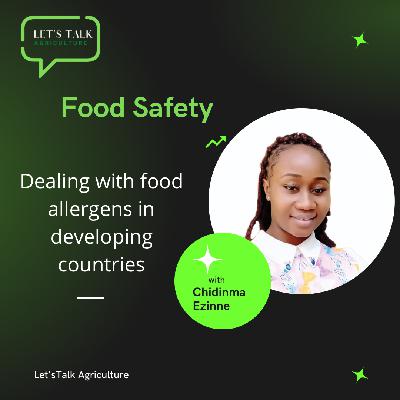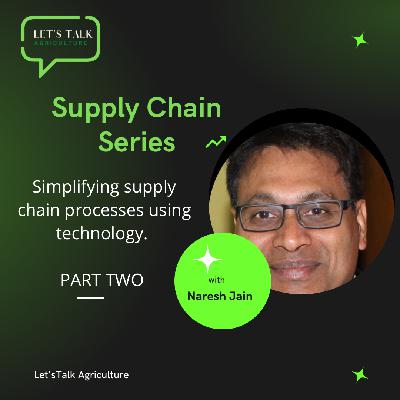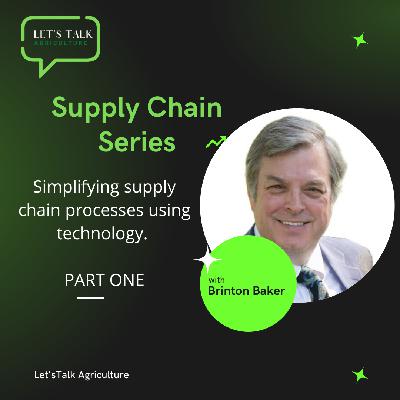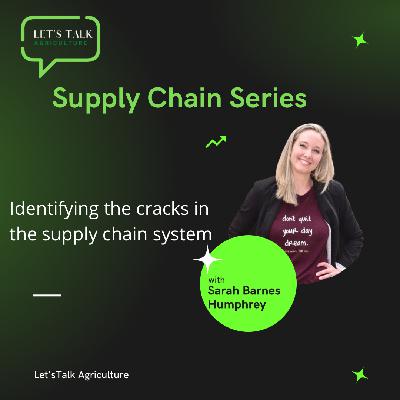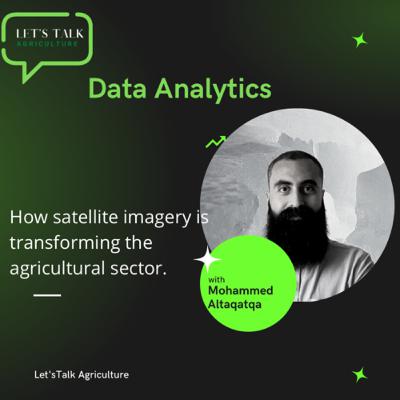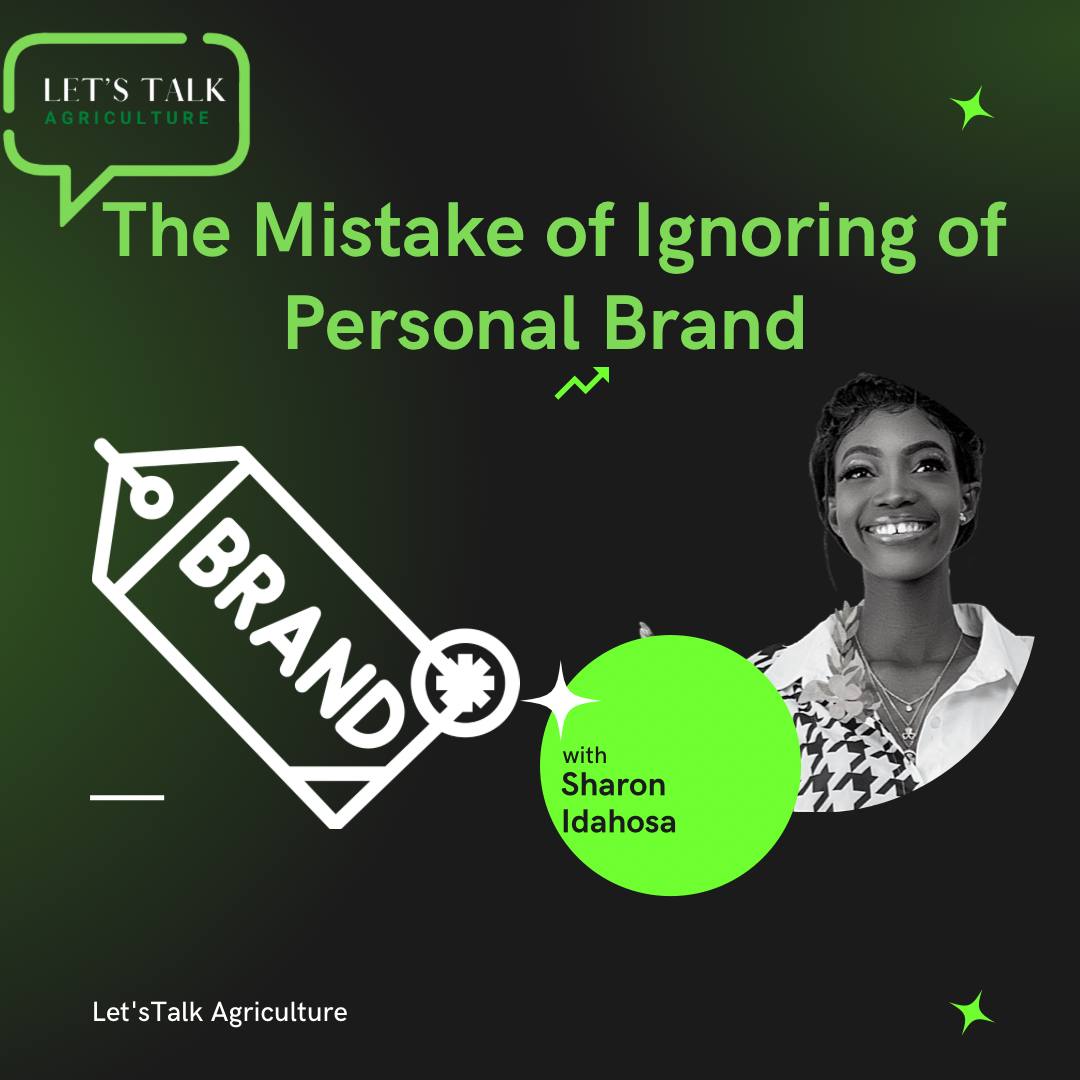Impact of Gender Financing in the Agricultural sector with Timothy Strong
Update: 2024-08-08
Description
Intro: [00:00:00 ] Sharon Idahosa: [00:43:00 ] Hello beautiful people. Welcome to the Let's Talk Agriculture podcast show, where we bring you the latest trends, opportunities, and innovations in the agriculture industry. Now this episode is brought to you by Opportunity International, a nonprofit organization equipping families with the tools [00:01:00 ] and training that they need to build their businesses, improve harvest, provide for their families and send their children to school, and even break the cycle of poverty. Now talk about innovative financial solutions. They can help families living in extreme poverty to build sustainable livelihood. Now, if you'd like to learn more and support the work that they do, quickly visit opportunity.org. Now, this is me bringing to you the impact that they have created so far when it comes to gender financing. We already know that women face so much challenges when it comes to getting access to finance. And if you're one of those, this is the best place, you know, to, you know, learn and get access to this initiative that they've put in place for you as a woman. And of course, if you are one of those supporting women, this is the best place to go. So, I encourage you to really just check out opportunity. org to see the best [00:02:00 ] ways that you can benefit. So, joining me today is Tim Strong, head of agricultural financing at Opportunity. Tim has successfully led the agri finance initiatives with his team in Malawi and beyond. Hello, Tim. Thank you so much for joining the show today. How are you doing? Timothy Strong: Thank you, Sharon. I'm really excited. As I said about it being Friday, I'm looking forward to the weekend ahead. It's absolutely a pleasure to be invited to join you on the podcast today. Sharon Idahosa: It's a pleasure to have you. I mean Fridays just look almost the same to me anyway. So, yeah, I looked through, um, the recent feature with you and your team on Bloomberg and I must say that you have done incredibly well. I mean a great job so far. So, I mean, why don't you share with us Um, the objectives of the gender finance projects and the implementation in Malawi. I know it was Implemented in Malawi or is it beyond Africa already? But I mean, let's just have this as a case study. Timothy Strong: Very cool Sharon So, um, it's definitely been a [00:03:00 ] pleasure to be able to spread the good news I think you and I have some very similar perspectives in terms of the gospel of the small holder farmer Uh, for us at Opportunity, it's really been a journey for us as we've continued to really focus what we do on listening to our clients. Um, so a lot of what, uh, you referenced to in terms of the Bloomberg article and how we're innovating with generative artificial intelligence to support farmers, it all boils down to that same piece is how do we make sure that we implement human centered design. How do we become specialists and listening to the needs of the variety of clients that we have for opportunity has been, uh, as I said, a journey and we've been in operations now for over 53 years Organizationally We've been able to reach over 19. 4 million clients and 95 percent of those whom are women. And we've partnered with 130 different financial institutions across 33 countries within our overall lending book of roughly 2. 3 billion. Um, over 450 million of [00:04:00 ] that, uh, is financing directly the unlock. Um, so for us, we really see our mission and our mandate to really make sure that we're bringing together the right partners and the right relationships to access, uh, to really have a centered focused on X. It's really, you know, capital as an access piece for farmers, training and support networks. Um, really a lot of this, uh, builds up on that, but, um, for our team and our program. We've come together for agricultural finance around a belief in rural prosperity. How do we really see that farmers are the major driving engine of economic growth in all of the countries that we live in? And how do we make sure that they're served as such? So, when I, when I mention rural prosperity in shorts, our mandate as a program is helping farmers to grow more. And to earn more. Um, and really that becomes one of the most. So, we see that investing in agriculture is one of the most powerful actions we can take for more inclusive future, more opportunities and agriculture mean that fewer people go hungry, fewer children miss [00:05:00 ] school, and rural families are able to build. So, you know, that's a really ambitious goal for us as a program and as a whole. And yet, we've really developed our work and our portfolios because of one key fact. And it's really that many farmers here and across sub Saharan Africa still only do at 20 to 30 percent of them. So, for us, really making sure that we're supporting farmers again, on that same mandate of supporting farmers to grow more and to earn more is key. Um, but you know, for us, When we look at some of the numbers and the figures and listen to our, listen to our clients, we also see that on average, about 55 to 60 percent of all labor on all farms across Africa is conducted by women. So, if we're not really developing strategies, tactics, and mechanisms to make sure women are included in this economic growth. Then we've lost the plot, um, we've really missed the target as a whole. Um, so Sharon, I am really grateful for the time today to really share in terms of opportunities, [00:06:00 ] agriculture, finance, work, and our women's economic advancement strategy. Uh, my team has given me a liberty to name the strategies. So, we're calling it our GROW strategy, which is Guaranteeing Rural Opportunities for Women. It's really exciting for me to be able to share, uh, the Uh, what we're launching now after we've conducted a number of highly rigorous equity audits across our programming and our staffing, how do we really define support and targets for partners and outcomes for women? Really defining our activities and targets across all of our programmatic pillars, uh, and committing to, to partnerships with specialists. Uh, especially for areas that are outside of our, our own professional remits. So, you know, specifically looking at violence against women, how do we make sure we build partnerships? Um, so that's just kind of a briefer in terms of what we're looking at, but ultimately have a very robust, in my opinion, strategy for how do we move forward and really look at why this is important to us as an organization as a whole. So, Sharon, that's kind of the brief overview. [00:07:00 ] Um, I can of course talk for hours and hours and hours as I think, Sharon, you can acknowledge, um, around what we're striving to do, but we're really excited about next steps. Sharon Idahosa: Yeah, I know definitely women contribute greatly to the agricultural sector, but they still definitely face some sort of, um, barrier when it comes to accessing finance. And it's really amazing to know that, um, your team is doing something to get them involved. I mean, they contribute, I think, about 60 to 70 percent of the food that we eat, they are majorly, um, women involved in farming. But yet, we still see them getting, um, um, struggle when it comes to accessing finance. And most of the financial institutions, um, Um, I believe that they should, um, tailor some of their policies or tailor the products to the farmers directly. And I think I heard you saying something about, um, speaking to the farmers to know what they need for you to, you know, um, set up. a [00:08:00 ] policy or a product that fits them. Because sometimes I don't know about your location, but I know that, um, I've heard so many farmers complain about, um, having to, um, bring their husbands, you know, get access to finance that they need to, you know, scale business. I think is, um, sorry to say, but if you ask me, I think it's ridiculous. I mean, because sometimes. And in some locations, rather here in Nigeria, uh, many of the farmers are women, right? And, um, their husbands are not involved. And when they go to the farms, most of the husbands end up collecting the, the funds that was given to them because they had to bring their husbands, you know, head of the home to get access to that finance. But I think that if there is a particular, um, product that is targeted to women and they do not need to Um, um, fill out all of those criteria or have to bring their, their, their husbands, you know, get access to finance, they will [00:09:00 ] be able to have access or better control of the funds that they've been given, and they will be able to scale their businesses without, um, in form of, um, challenge. So I would like to know, maybe there's some sort of, um, innovative approaches or technologies or something that have been leveraged by your organizations, you know, support women in accessing this finance without experiencing all of this barriers or something. Timothy Strong: Yeah, sure. And I, um, would love to, to dig into this deeper. And this is a topic that's very near and dear to my heart as well. Um, especially as my wife is also a woman in agriculture, as we have a small cattle farm in the Southern part of Malawi. So, um, definitely see firsthand a lot of the limitation. Um, first off, I think there are two really important points from the last five years of our overall gender strategy within our agriculture finance and a running, uh, from 2018 until now, as we're looking to revamp our approaches, um, the first and foremost is that [00:10:00 ] women and gender, it's not a monolith, right? So really understanding that one woman's need is not the same as the next. So, making sure, uh, as you, as you called out from the previous comment that we're listening and understanding to the varying needs of different women in agriculture. I can guarantee you that a woman who's running a multinational dairy business Central Nigeria. Her needs and, and her educational background
Comments
In Channel

